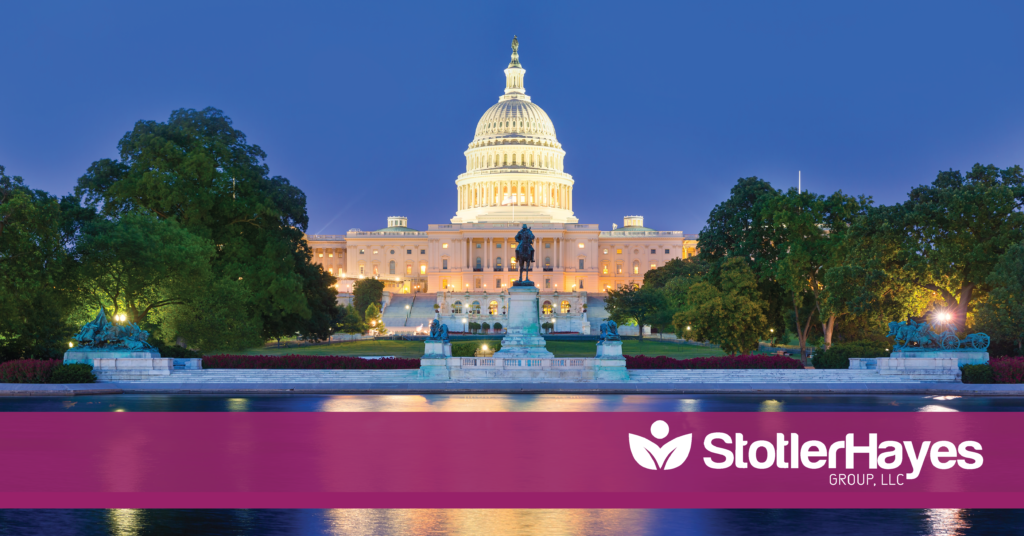 Since the CARES Act took effect on March 25, 2020, there has been an unrelenting push for the passage of follow-up legislation to provide American businesses and individual citizens with additional Covid-relief. The Democrat-backed HEROES Act and the Republican HEALS Act emerged as the two competing bills most likely to succeed the CARES Act.[1] However, to date, a divided Congress has not been able to secure passage of either legislative proposal due to interference from the White House and ongoing disagreements as to the scope of the financial relief to be provided and the degree of the legal immunity to be granted.[2]
Since the CARES Act took effect on March 25, 2020, there has been an unrelenting push for the passage of follow-up legislation to provide American businesses and individual citizens with additional Covid-relief. The Democrat-backed HEROES Act and the Republican HEALS Act emerged as the two competing bills most likely to succeed the CARES Act.[1] However, to date, a divided Congress has not been able to secure passage of either legislative proposal due to interference from the White House and ongoing disagreements as to the scope of the financial relief to be provided and the degree of the legal immunity to be granted.[2]
Congressional Democrats had been previously unwilling to entertain a piece-meal relief package to facilitate the flow of at least some money into the economy; however, the results of the presidential election have shifted that stance.[3] Now, it seems there may be hope for the 2020 passage of a smaller relief package of $908 billion, which is half of what Democrats have demanded, but double what Republicans have offered.[4] The new relief package has been put forth by the bicameral and bipartisan Problemsolvers Caucus as a last effort to pass Covid-relief legislation before the new year.[5] Thus far, the proposal seems to have been favorably received both by Democratic leader, Nancy Pelosi, and Republican leader, Mitch McConnell.[6]
The terms of the Problemsolvers’ package have not yet been reduced to a formal bill, but the Caucus has published both a Press Release[7] and a “framework”[8] for the proposed relief. The framework indicates that the legislation would “[p]rovide short term Federal protection from Coronavirus related lawsuits with the purpose of giving states time to develop their own response.”[9] This differs significantly from the immunity provisions contained in the Republican’s July 27, 2020 SAFE TO WORK Act, which specifically sought to preempt the current patchwork of state laws as to businesses’ and health care providers’ liability for Covid-related claims of negligence by providing an exclusive federal cause of action for same.[10]
Stotler Hayes Group, LLC (“SHG”) will continue to aggressively monitor the Problemsolvers Caucus proposal and any other legislation related Covid-litigation immunity. Please reach out to SHG with any questions regarding the status of Covid-litigation immunity legislation in your state(s) and/or on the federal level.
[1] See SHG’s blog post regarding the Covid-19 & Legal Immunity for Long Term Care Providers detailing all major proposed legislation pertaining to provider immunity, available here: https://www.stotlerhayes.com/covid-19-legal-immunity-for-long-term-care-providers/.
[2] Reuters Staff, “US Republicans push for coronavirus lawsuit immunity for business,” Reuters U.S. Legal News, May 1, 2020, https://www.reuters.com/article/us-health-coronavirus-usa-congress/u-s-republicans-push-for-coronavirus-lawsuit-immunity-for-business-idUSKBN22D5MG.
[3] Kelsey Snell, “Top Democrats Back Off Demands for Larger Covid-19 Bill,” KPCW, December 3, 2020, https://www.kpcw.org/post/pelosi-and-schumer-endorse-bipartisan-covid-19-relief-back-push-larger-bill#stream/0.
[4] Michel Martin, “Sticking Points in Latest Coronavirus Relief Bill,” NPR All Things Considered, December 5, 2020, https://www.npr.org/2020/12/05/943533940/sticking-points-in-latest-coronavirus-relief-bill.
[5] Id.
[6] Id.
[7] Available here: https://problemsolverscaucus-gottheimer.house.gov/media/press-releases/problem-solvers-caucus-pushes-their-bicameral-bipartisan-emergency-covid-19.
[8] Available here: https://www.manchin.senate.gov/imo/media/doc/COVID%20Emergency%20Relief%20Framework.pdf?cb.
[9] Id.
[10] See fn. 1, supra.
SHG Attorney Brittany Sayer is admitted to practice in New Mexico

